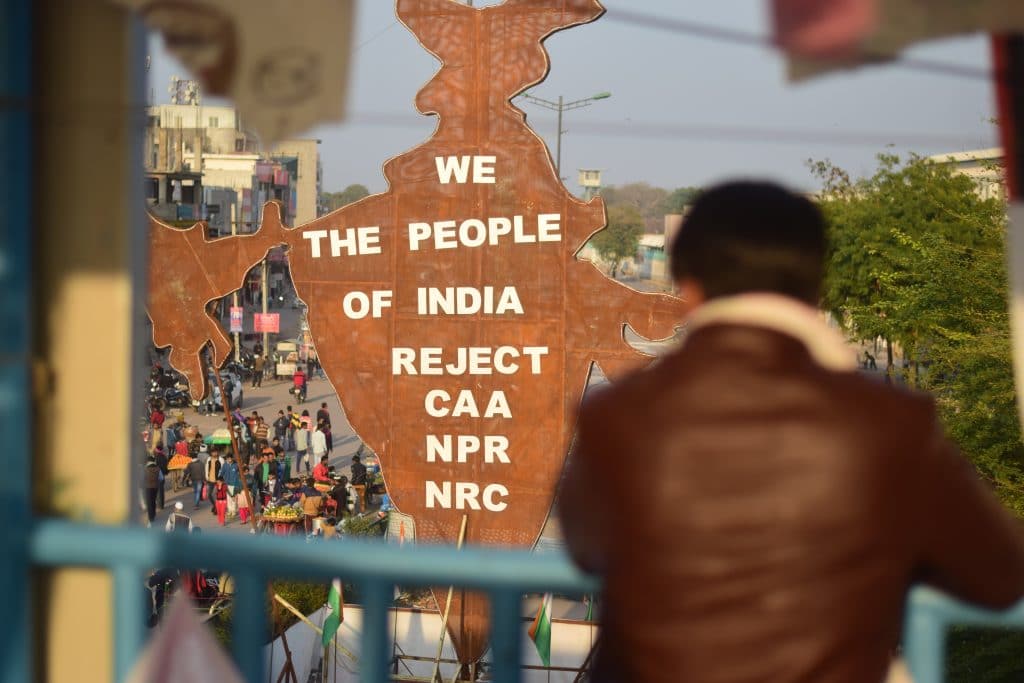
The Narendra Modi government on Friday invited non-Muslims like Hindus, Sikhs, Jains, Buddhists and Christians belonging to Afghanistan, Bangladesh and Pakistan and residing in 13 districts in Gujarat, Rajasthan, Chhattisgarh, Haryana and Punjab to apply for Indian citizenship.
The Union home ministry issued a notification in this effect for immediate implementation of the order under the Citizenship Act 1955 and Rules framed under the law in 2009 even though the rules under the Citizenship Amendment Act (CAA) enacted in 2019 are yet to be framed by the government.
“In exercise of powers conferred under Section 16 of the Citizenship Act, 1955 (57 of 1955), the central government hereby directs that powers exercisable by it for registration as citizen of India under Section 5, or for grant of certificate of naturalisation under section 6 of the Citizenship Act 1955 in respect of any person belonging to minority community in Afghanistan, Bangladesh and Pakistan namely, Hindus, Sikhs, Buddhists, Jains, Parsis and Christians, residing in the districts mentioned and the states mentioned below….,” read the latest home ministry notification.
The districts listed in the notification are: Morbi, Rajkot, Patan and Vadodara (Gujarat); Durg and Balodabazar (Chhattisgarh); Jalore, Udaipur, Pali, Barmer and Sirohi (Rajasthan); Faridabad (Haryana); and, Jalandhar (Punjab).
According to the notification, “The verification of the application is done simultaneously by the Collector or the Secretary, as the case may be, at the district level and the state level and the application and the reports thereon shall be made accessible simultaneously to the Central Government on online portal.”
It went on to say: “The Collector or the Secretary, as the case may be, on being satisfied with the suitability of the applicant, grants him the citizenship of India by registration or naturalisation and issues a certificate of registration or naturalisation, as the case may be, duly printed from online portal and signed by the Collector or the Secretary, as the case may be, in the Form as prescribed in the said rules.”
CAA
When the CAA was enacted in 2019, there were widespread protests in different parts of the country, led mainly by Muslims and Opposition parties, and even an anti-Muslim pogrom took place in Delhi in early 2020 in the wake of these protests.
So far, the violence by police and Hindu fringe groups against the anti-CAA protesters has killed more than 100 Muslims across the country.
The Citizenship Amendment Act (CAA) fast-tracks nationality for non-Muslim minorities from neighbouring Pakistan, Bangladesh and Afghanistan but excludes Muslims. Critics have called the proposal, contained in the Citizenship Amendment Act, 2019, blatantly anti-Muslim and an unconstitutional.
Coupled with the ongoing National Population Register (NPR) and a proposed National Register of Citizens (NRC), India’s Muslims, who form nearly 15 percent of the country’s 1.3 billion population, fear the steps are aimed at marginalising them. The NPR is a list of residents in the country – both citizens and non-citizens – while NRC is the list of citizens.
Indian Express quoted the government officials and said the home ministry has been deliberating on framing the CAA rules for over a year without any headway.
Nearly 140 petitions have been filed by Muslim groups, opposition parties and activists, who say the CAA violates India’s secular constitution. The petitions challenging the new citizenship act are pending before the India’s apex court.



